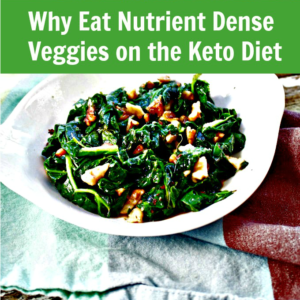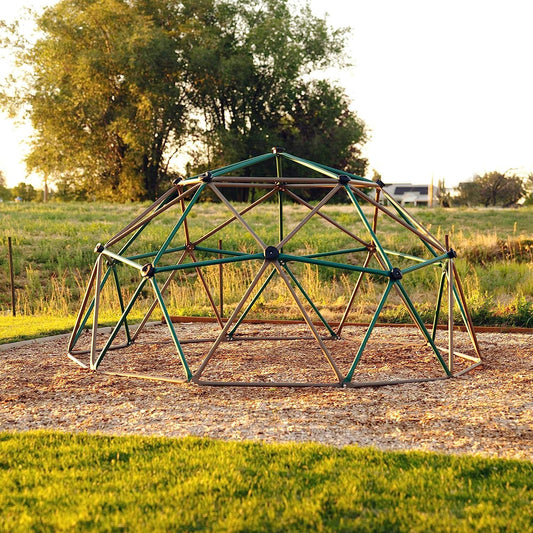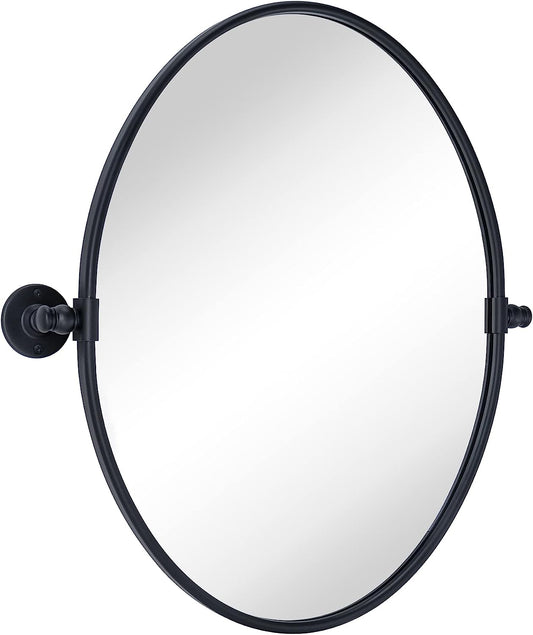Eat a nutrient dense keto diet with vegetables
We all know that when we hear the words keto, every high fat food we can possibly think of comes to mind butter, coconut, bacon, fatty steaks, nuts, seeds, and the list goes on.
But keto isnt just strictly about fat. While the bulk of your calories are coming from fat, we cant forget about vegetables, the most nutrient dense part of the diet. As kids, were also told to eat your vegetables, and for good reason theyre loaded with vitamins and minerals that keep the body functioning optimally and prevent nutrient deficiencies that could potentially lead to the development of chronic diseases.
Broccoli Rabe with Italian Sausage
How to get enough nutrients on a keto diet
Whenever you remove food groups from your diet, you always run the chance of experiencing nutrient deficiencies. However, since keto advises consuming plenty of nutrient rich foods like vegetables, fatty meat and fish and eliminating nutrient-poor foods like baked goods, grains, omega-6 seed oils and sugar, the risk becomes significantly less.
One of the best ways to ensure youre getting a full spectrum of nutrients is to include high quality meats grass-fed, pastured, organic whenever possible, healthy fats like butter, avocado oil or olive oil and low carb vegetables like greens and cabbage.
When it comes to choosing nutrient dense vegetables for the keto diet, keep in mind that every different color vegetable offers a different spectrum of nutrients.
For example, deep colored vegetables like tomatoes, beets, red cabbage, radicchio, and peppers are rich in antioxidants, vitamins and minerals like vitamin C, B vitamins, lycopene and anthocyanin.
Orange and green vegetables are rich in carotenoids, folate, potassium, vitamin C, chlorophyll, and antioxidants. Studies have shown that consuming a complete macro and micronutrient profile is critical in maintaining health, improving brain function, and preventing the development of chronic disease.
Spaghetti Squash with Italian Sausage and Mushrooms
What are the most nutrient dense keto vegetables?
If youre trying to determine how nutrient-dense a food is, looking at all the individual fats, the protein quality, the vitamins and minerals can be time consuming and difficult. There are summary scores but most are unreliable, except for more advanced ones that take into account concepts like bioavailability and active vs inactive versions of nutrients.
Vegetables may not be a complete source of protein but they do contain a great array of other nutrients. Leafy greens, like kale are notable for their minerals manganese and calcium, while an avocado stands out for its vitamin B5 (pantothenic acid) content.
Heres a list of vegetables that comfortably fit into a nutrient dense keto diet:
- Kale
- Collards
- Mustard greens
- Watercress
- Swiss chard
- Bok choy
- Spinach
- Arugula
- Brussel sprouts
- Cabbage
- Broccoli
- Broccoli Rabe
- Broccolini
- Cauliflower
- Bell peppers
- Mushrooms
- Asparagus
- Mushrooms
- Turnips
What nutrients are vegetables particularly rich in?
The vitamins and minerals present varies from vegetable to vegetable depends on a variety of factors like ripeness, variety, etc. However, many vegetables do contain similar essential micronutrients in varying quantities. These include, calcium, iron, magnesium, phosphorus, potassium, zinc, copper, manganese, selenium,vitamin E, vitamin C, thiamin, riboflavin, niacin, pantothenic acid, vitamin B6.
Keto friendly vegetables
While you may think a vegetable is a vegetable, theyre not all created equal and they definitely are not all part of a keto diet, or at least for regular consumption. For the most part, any vegetables grown above ground are low in carbs and thus fine to keep you in nutritional ketosis. But do be mindful of your overall carbohydrate intake because it can add up. Root vegetables, however, are significantly higher in carbohydrates than their leafy, above-ground counterparts, so they are best to consume moderately, but you can still enjoy, such asroasted turnips, a great substitute for potatoes.
Starchy vs. non-starchy Vegetables
Knowing the carb count on your vegetables is crucial when youre on a keto diet. It can keep you in or kick you out of ketosis. Non-starchy vegetables can comprise a significant portion of your plate because theyre low in carbohydrates, dont spike blood sugar and provide some essential micronutrients. While starchy vegetables do contain significant amounts of fibre, non-starchy vegetables do as well.
This Cauliflower Salad made with green and purple cauliflower is divine.
The vegetables listed above with the highest nutrient density are those that you should consume most often.
Always try to avoid sweet or starchy vegetables as theyre generally higher in carbohydrates. These include things like corn, potatoes, sweet potatoes, yams, yucca or cassava, parsnips, beans, peas and other legumes, and other higher starch vegetables.
For the most part, the sweeter the vegetable is, the more sugar it contains, and the higher the carb count. Vegetables like carrots, onions and squash are on the higher end for sugar count of keto vegetables.
Starchy vegetables that are okay, in moderation, on the keto diet include:
- Carrots
- Parsnips
- Turnip
- Rutabaga
- Pumpkin
- Winter Squash
- Celeriac
- Beet
- Onion
Keto friendly fruit
Fruits are one of those grey areas in keto. Some are okay and some are not for consumption on a regular basis. It depends on the carb count. As some fruits have more carbs than others, knowing which to avoid is key for reaping the benefits that keto has to offer.
Here are your best options if youre looking to add a little fruit to your diet:
Note: The net carb count is based on 100g [2].
- Blueberries 14g
- Raspberries 12g
- Blackberries 10g
- Avocado 9g (1.8 net carbs)
- Cantaloupe 8g
- Strawberries 8g
- Watermelon 8g
- Tomatoes 7g
- Starfruit 7g
- Rhubarb 5g
- Lemon 4g
As most keto diets keep net carb count under approximately 25, youll want to try for the fruits with the lowest carb count to maximize options. When struggling to achieve or stay at your desired level of nutritional ketosis you may want to have a stricter carb count using total carbs instead of net carbs. Strawberries, raspberries, blackberries and blueberries are your best best.
Avocado is high in good fat and low in carbs due to its fiber content, and is only 1.8 net carbs per 100 grams).
Avocado Baked Eggs with Lime Hollandaise
Arugula with Strawberries and Manchego Cheese
Keto vegetables: Watch out for hidden carbs
Everyone knows that a diet rich in vegetables is important for getting adequate nutrients, but while you may think that any and all vegetables are okay to consume, some are better than others. What people sometimes dont realize when theyre consuming a diet rich in vegetables but also trying to stay in ketosis is that hidden carbs can be the reason why you cant get into ketosis. Snacking on higher carb nuts or starchy vegetables like carrots are common offenders in this respect.
Soups with low carb veggies are a great way to fill up on a keto diet
Carb Count Vs. Net Carb Count
Theres also the confusion between total carb count and net carb count. The total number of carbohydrates in a food accounts for both digestible (gives you calories) and non-digestible components (gives you little to no calories). The non-digestible stuff includes starch, fibre, sugar, and sugar alcohols.
Net-carbs, on the other hand, are the fraction of digestible carbs that the body absorbs as some kind of sugar. These are what the body uses as energy. Carbs that cannot be absorbed as sugars of some kind are the non-net carbs. Two of the most common ones in this category include fibre and sugar alcohols. Fibre is not digestible and therefore functions to feed gut bacteria rather than nourish you directly.
To determine the amount of net carbs in a food, you take:
Net carbs = Total carbs (fiber + sugar alcohols)
Total carbs vs. net carbs is sometimes where people get confused because they fail to properly calculate the carbs theyre consuming and therefore go over their limit, which essentially prevents them from getting into ketosis. If youre not sure what the net or total carb count is use a food search engine like Nutritas.
This is especially true when you look at vegetables. People often think that just because its a vegetable, that you can go nuts with it not true. While there are a lot of vegetables that are low in carbs, there are also a lot of essentially non-starchy vegetables that arent.
Revisited Low Carb Green Bean Casserole
Conversely, there are also a lot of vegetables that people think are not low-carb but actually are. This includes things like snap beans (4.27g net carb), carrots (6.78g net carb), radishes (1.8g net carb), parsnips (13.09), green beans (6.8g net carb), onions (6.2g net carb), and pumpkin (7g net carb).
This Roasted Sugar Pumpkin with Ricotta Cheese is Nutrient Dense and Low Carb
Dont Forget Your Veggies in Your Keto Diet
Despite having a reputation for meat and fat, keto also welcomes low-carb vegetables. Consuming a wide variety of vegetables to replace low quality fast-food is definitely an upgrade.
Vegetables grown above ground are your safest bet to consume frequently due to their low net-carb count, but it may be possible to include those grown under ground as long as they are a small part of your diet just be mindful of quantities because they can easily cause you to exceed your daily carb intake and affect your state of ketosis.
Pin This
One of my personal goals with Spinach Tiger is to encourage people to eat their veggies, no matter what kind of diet plan. People on keto often desert vegetables for fat, not realizing the benefits of eating foods high in anti-oxidants, fiber, and plain deliciousness. Take the time to browse these 75 and counting low carb vegetable recipes.
The post The Most Nutrient Dense Vegetables for the Keto Diet appeared first on Spinach Tiger.













